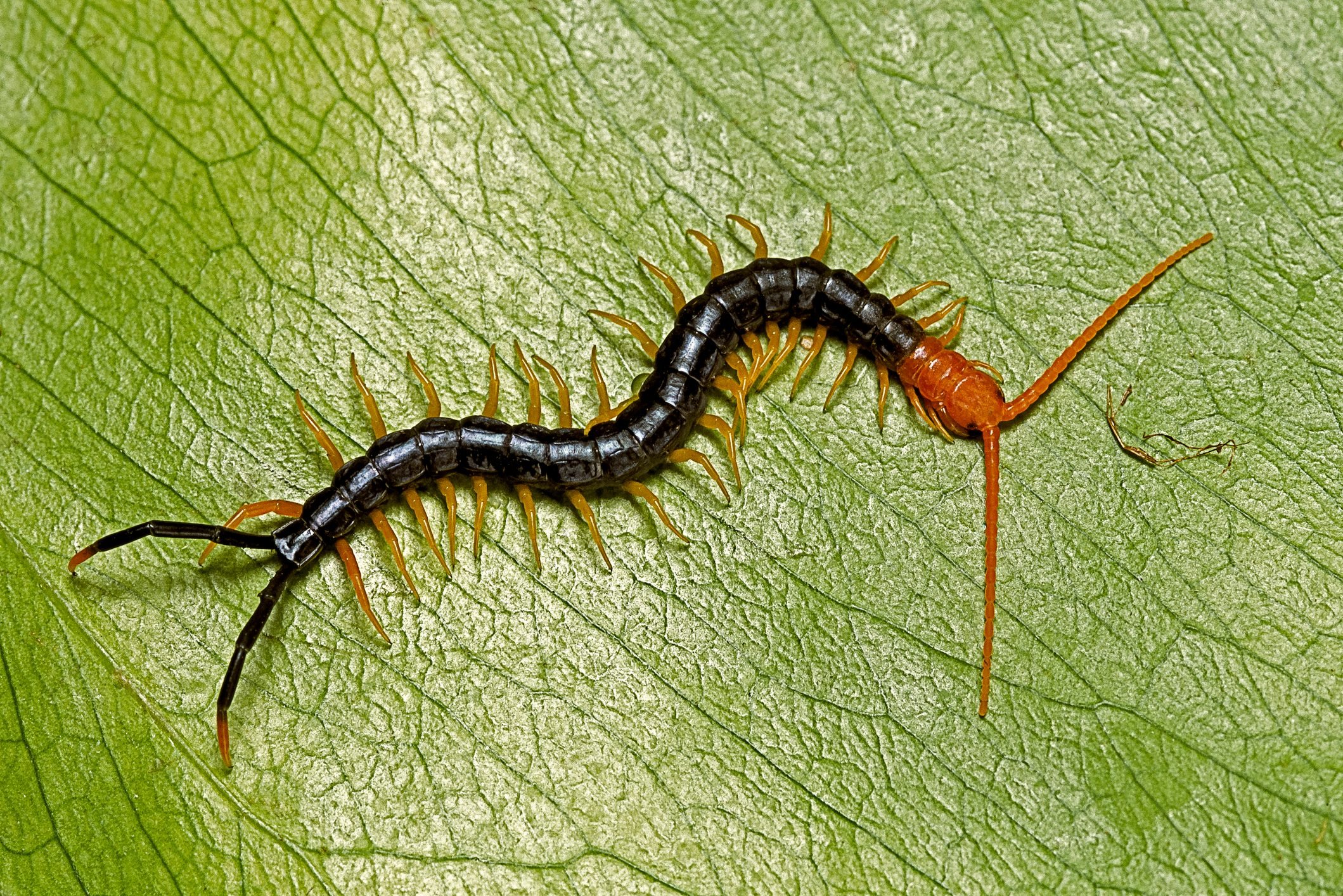Learn whether or not there's cause for concern, beyond a mild case of the creeps due to all those legs.

Do Centipedes Bite?

You may have heard the case for leaving centipedes alone. If not, you’re likely among the many who pick up a shoe or recruit someone else to do the dirty work for you.
Rest assured, the common house centipede found in the U.S. is rarely dangerous and even more rarely life threatening. Looking for specifics? Read on.
On This Page
Do Centipedes Bite?
They don’t bite so much as sting.
Centipedes are venomous killers, similar to rattlesnakes. They kill their prey through a process called envenomation, where they inject venom directly into their victims through a bite, sting or pinch.
While rattlesnakes inject poison into mice and other animals with their teeth, centipedes emit a poisonous venom through the pincer-like tips of the first set of their many legs, called forcipules.
Thankfully, centipedes consider insects their prey, not humans. But like many animals who feel threatened, centipedes can lash out when provoked.
Where Do People Get Centipede Bites?
Because house centipedes prefer warm and wet environments, they’re frequently found in the Southern states. However, you’ll also find them in Northern basements, taking shelter from the cold outside.
Centipedes also live under rocks, piles of leaves or logs. They crawl out at night to feed. People working in their yards or down in dank cellars are particularly susceptible to surprise encounters.
Stings are most common on the hands and feet, the latter because centipedes like to hide in shoes. You’ll also get stung if you accidentally step on one while barefoot.
What Kinds of Centipedes Bite?
The house centipede, found in all 50 states, is the most common and responsible for most reported stings. The giant desert centipede, AKA the giant Arizona desert centipede, also abounds in North America and will sting if provoked. Here are the most common types of centipedes you’ll find in your house.
Globally, the Scolopendra gigantea family of centipedes — the largest identified species — can reach up to a foot in length, producing enough venom to take down a tarantula, lizard or frog. They’ve even been known to make meals of birds, mice, bats and snakes.
What Does a Centipede Bite Look Like?
You can identify a centipede bite by the two puncture marks where the venom entered your skin. The “bite” site may cause initial discomfort and pain, then become red and swollen.
Are Centipede Bites Dangerous?
While centipede venom rarely triggers severe responses, people who are stung or pinched can experience a range of symptoms, including pain, swelling, redness, headache, nausea and/or vomiting. Symptoms should subside in a few hours. If they persist, seek medical attention right away, especially if you notice signs of infection.
“They can be somewhat hazardous to humans due to their toxic venom,” says Ed Spicer, general manager of PestStrategies.com. “However, there have only been a handful of deaths reported due to anaphylactic shock in the last 100 years.”
How To Handle a Centipede Bite
Treat stings and pinches as you would a bee sting or mosquito bite, with anti-itch and pain-relieving medication.
- Apply a cold compress to the site to help alleviate pain and itching.
- If the area is swollen, apply an ice pack, which can reduce swelling and inflammation.
- If pain worsens, seek medical attention immediately. The sting could be from a centipede other than the traditional house type, or from a different insect or animal altogether.
- Those allergic to insect bites may require a trip to the hospital. Centipede venom contains chemicals such as histamine and serotonin that can cause serious reactions in people allergic to bee and wasp stings.
- If you’re having trouble breathing after a centipede bite, call 911 or go to the nearest hospital.
- If you’re highly allergic, you may also need to use your EpiPen as you would for a bee or wasp sting.
Can You Die?
Very, very unlikely.
Spicer says studies showed that between 1979 and 2001, centipede stings caused only six deaths in the U.S., compared to 1,060 from bees, wasps and hornets in the same period.
The prognosis after a centipede bite is excellent, although some people report anxiety. Not only may a centipede sting hurt like the dickens, but even imagining a multi-legged creature slithering up your arm can be understandably unnerving.




















